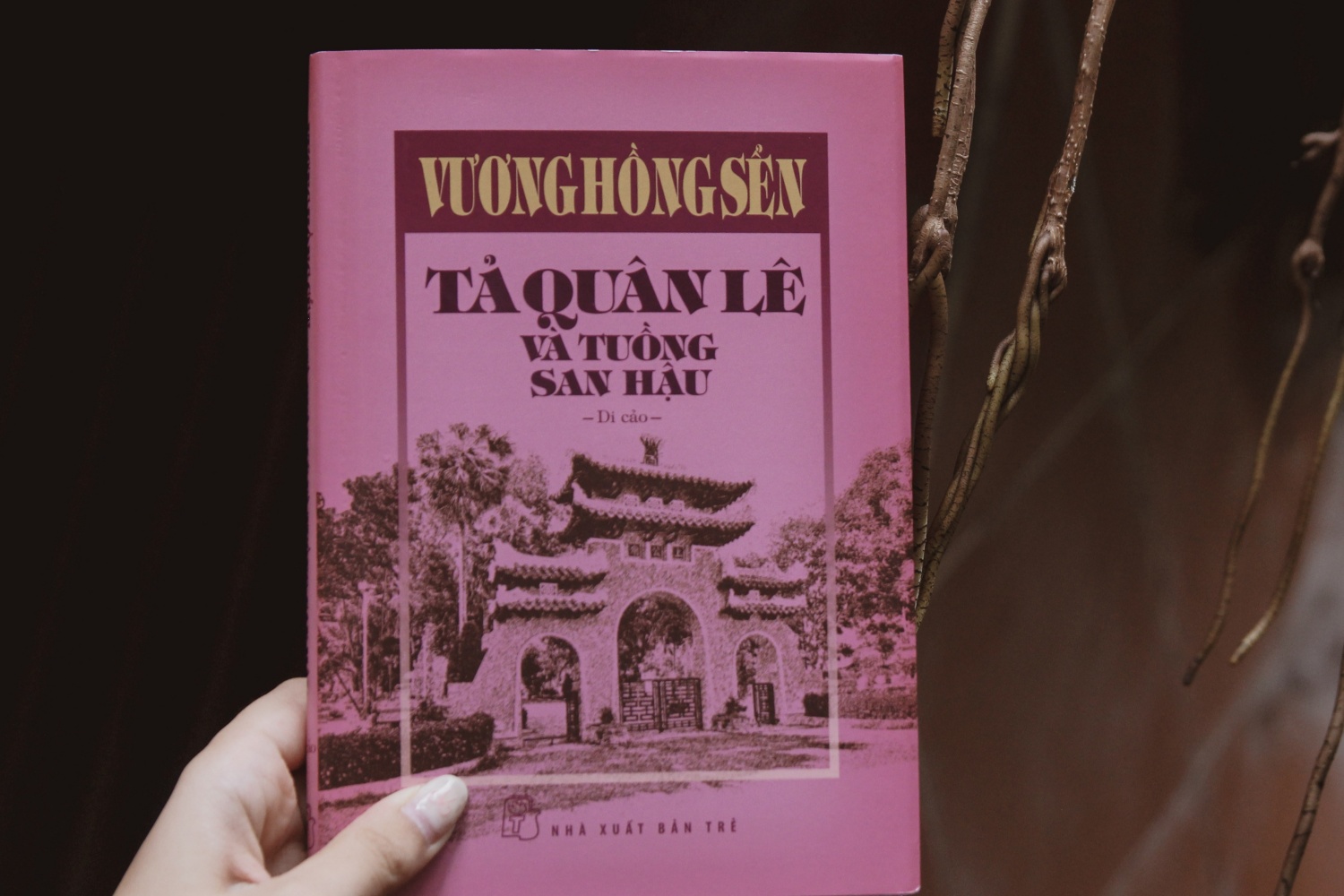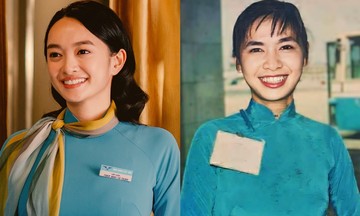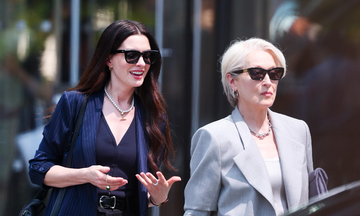Written in 1994 when Vuong Hong Sen was 93 and suffering from illness, the book embodies not only his knowledge but also the passion and experience of a life fully immersed in the past, according to a representative of Tre Publishing House, the distributor.
The book recounts part of the life of Marshal Le Van Duyet, respectfully referred to as "Duc Ong" (Lord) by the people, and explores the origins of the San Hau opera, a work he cherished.
 |
The cover of "Marshal Le and the San Hau Opera." Photo: Tre Publishing House |
The cover of "Marshal Le and the San Hau Opera." Photo: Tre Publishing House
According to Vuong Hong Sen, the opera is closely tied to Le Van Duyet's life. He presents three theories about the opera’s origins, many linked to Le Van Duyet and his adopted son, Le Van Khoi. Vuong Hong Sen suggests Le Van Duyet himself commissioned the work, ordering scholars to compose it. After revisions, the opera was completed and attributed to Deputy Captain Le Van Khoi.
Alternatively, Vuong Hong Sen proposes San Hau originated in Binh Dinh, renowned for its hat boi (classical Vietnamese opera) tradition. "Binh Dinh hat boi is very skillful, like when a turtle descends the mountain, Du Hong lowers the mountain..." the book states.
His third theory posits a Hue version of San Hau. Upon reaching the capital and receiving royal approval, court officials refined the dialogue. This resulted in a polished but less natural and vibrant version compared to the Saigon San Hau.
Le Van Duyet (1763-1832), also known as Ta Quan Duyet, was a politician and military figure who supported Nguyen Anh in the war against the Tay Son rebels. After the war and the establishment of the Nguyen dynasty, he became a high-ranking official, serving Emperors Gia Long (Nguyen Anh) and Minh Mang. In 1832, Le Van Duyet died after an illness at the age of 69. He was buried on a high mound west of Gia Dinh citadel, now his mausoleum in Ba Chieu, Binh Thanh district, Ho Chi Minh City. His life inspired theatrical works like the play Ta Quan Le Van Duyet (directed by Doan Hoang Giang) and the cai luong (reformed opera) Trung Than (directed by Hoa Ha).
The book showcases Vuong Hong Sen's access to diverse and rare materials. He offers multiple perspectives on the same information, often presenting new evidence or opinions, engaging the reader in a discussion. This encourages scholarly debate and further exploration of unresolved aspects.
The publication reflects Vuong Hong Sen’s love for traditional opera. He laments, "Hat boi is like an oil lamp running dry. The older generation is fading away like stars in the sky, and young people are not enthusiastic because the profession has no future." The book also discusses antiques, a recurring theme in his later writings.
Vuong Hong Sen (1902-1996), whose pen names included Anh Vuong, Van Duong, and Dat Co Trai, was a renowned historian and archaeologist in Vietnam. Upon his death, he bequeathed Van Duong Phu and 849 artifacts from his collection to the state, hoping to establish a museum in his name. He was passionate about reading, collecting, recording observations, and researching traditional games like cricket fighting, cockfighting, fish fighting, bird keeping, and bonsai cultivation. Many of his works are memoirs and travelogues, providing valuable insights into Vietnamese life and culture.
In the appendix, the author includes miscellaneous writings with commentary, such as King Thanh Thai’s two visits to Gia Dinh-Saigon, including a visit to Le Van Duyet’s tomb. Vuong Hong Sen shares folk tales and personal reflections on the dynasty and historical figures.
"We hope the simple yet captivating prose in this manuscript will offer readers a clearer view of old Southern Vietnam," said a representative of the editorial team.
Actor Dinh Toan portrays Marshal Le Van Duyet in the play "Supreme Commander Marshal Le Van Duyet - The Man with 9 Death Sentences" (directed by Hoang Duan) in 2024 at the Idecaf theater. Video: Mai Nhat
Mai Nhat












